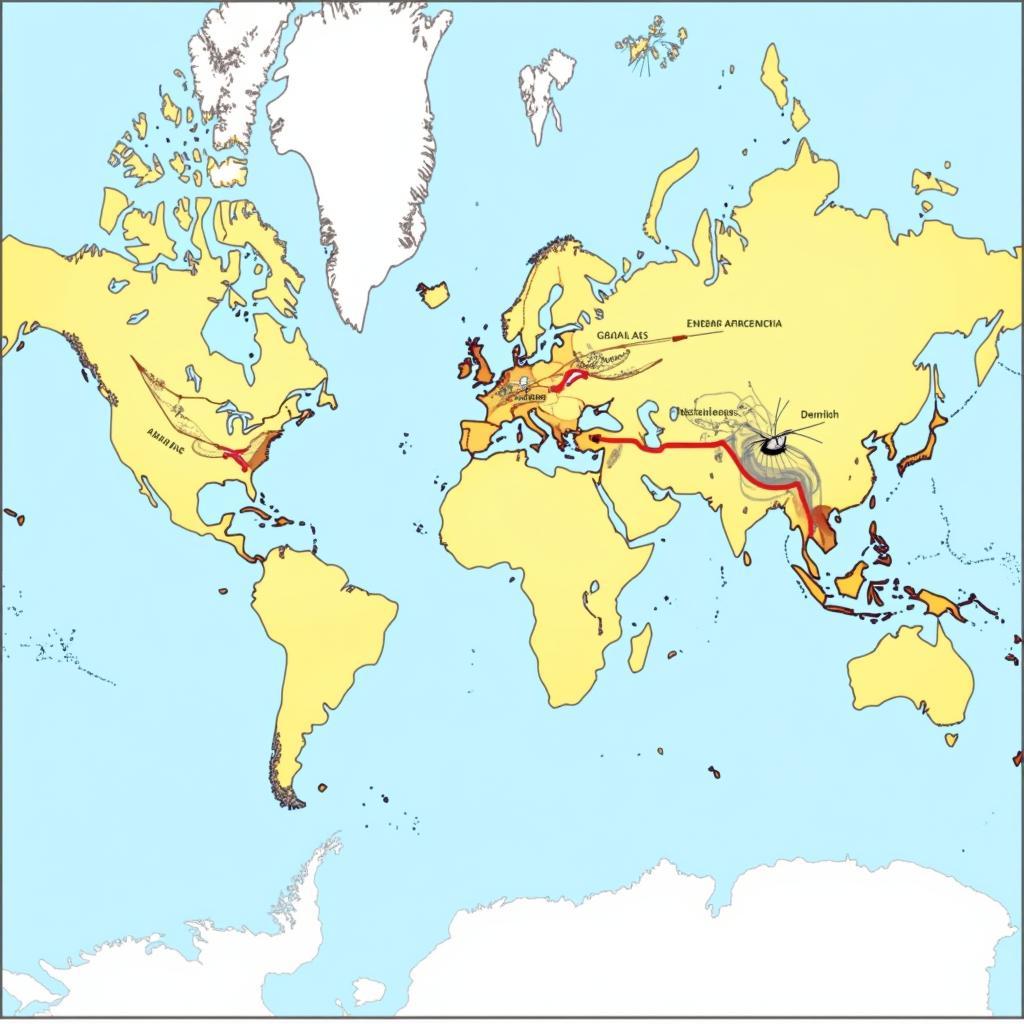Navigating the World of African Coin Exchange
The bustling world of African Coin Exchange offers a fascinating glimpse into the continent’s diverse economic landscape. Whether you’re a seasoned collector or a curious traveler, understanding how to exchange currency in Africa can greatly enhance your experience. This guide will equip you with the essential knowledge to navigate the intricacies of African coin exchange, ensuring smooth and successful transactions throughout your journey.
Understanding the African Currency Landscape
Africa boasts a rich tapestry of currencies, each with its own unique history and value. From the widely recognized South African Rand to the less familiar Eritrean Nakfa, exchanging currency in Africa requires a keen understanding of the different monetary systems in place. While some countries readily accept major international currencies like the US dollar or Euro, others rely heavily on their local currencies for daily transactions.
Essential Tips for Exchanging Coins in Africa
Prior to embarking on your African adventure, it’s crucial to research the specific currency regulations of the countries you plan to visit. Some countries have restrictions on the amount of local currency you can bring in or take out, while others may have limitations on exchanging certain denominations of coins. Familiarizing yourself with these regulations can save you time, money, and potential complications during your trip.
-
Utilize Reliable Exchange Services: When exchanging your coins, it’s crucial to choose reputable exchange bureaus or banks. Avoid exchanging money on the streets, as this can expose you to scams or unfavorable exchange rates. Look for authorized dealers with clear signage displaying exchange rates and any applicable commissions.
-
Compare Exchange Rates: Exchange rates can fluctuate significantly between different providers. Don’t hesitate to shop around and compare rates from multiple sources before committing to a transaction. Online currency converters can be helpful tools for getting an idea of current market rates, but keep in mind that actual rates may vary slightly.
Navigating Local Markets and Informal Transactions
While formal exchange services are generally recommended, you might encounter situations in local markets or rural areas where informal currency exchange is more prevalent. In such cases, it’s essential to exercise caution and be aware of potential risks.
-
Negotiate with Confidence: If you find yourself engaging in informal currency exchange, always negotiate the exchange rate beforehand. Be prepared to haggle politely but firmly to ensure a fair deal.
-
Verify Authenticity: Counterfeit currency can be a concern in some areas. Take the time to familiarize yourself with the security features of the local currency and scrutinize any banknotes or coins you receive. If you have any doubts, it’s best to err on the side of caution and decline the transaction.
Digital Payment Options and Their Growing Presence
In recent years, digital payment methods have gained significant traction across Africa. Mobile money platforms, such as M-Pesa in Kenya and MTN Mobile Money in various countries, have revolutionized financial transactions, particularly in urban areas. These platforms offer a convenient and secure alternative to carrying large amounts of cash.
- Embrace Mobile Money: Consider setting up a mobile money account if you’re comfortable with digital transactions. You can easily load your account with local currency and use it to make payments at participating vendors, withdraw cash from agents, or even send money to others.
Conclusion
Exchanging coins in Africa can be an exciting and rewarding aspect of your travel experience. By understanding the intricacies of African currencies, following essential tips, and embracing the growing digital payment landscape, you can navigate the world of African coin exchange with confidence. Remember to research local customs, plan ahead, and engage with the local culture to make the most of your financial interactions throughout your African adventure.
FAQs about African Coin Exchange
What is the most widely accepted currency in Africa?
While Africa has a diverse range of currencies, the South African Rand (ZAR) is widely accepted in several Southern African countries due to its relative stability and strong regional trade links. The US dollar (USD) and Euro (EUR) are also widely recognized and accepted, particularly in tourist areas.
Can I use my credit card everywhere in Africa?
Credit card acceptance varies widely across the continent. Major cities and tourist destinations generally have good credit card infrastructure, while smaller towns and rural areas may rely primarily on cash transactions. It’s always advisable to carry some local currency for smaller purchases and emergencies.
Is it better to exchange currency at the airport or in the city?
Airport exchange bureaus often offer less favorable exchange rates compared to those found in cities. If possible, it’s generally more cost-effective to exchange your currency once you reach your destination.
What should I do if I lose my money while traveling in Africa?
It’s crucial to keep your money safe and secure while traveling. In case of loss or theft, report the incident to the local police immediately and contact your bank or credit card provider to cancel any lost or stolen cards.
Are there any cultural customs related to money in Africa?
Yes, like many cultures, Africa has its own set of customs and etiquette surrounding money. It’s considered polite to be discreet when handling money in public and avoid openly displaying large sums of cash.
Need further assistance with African currency exchange?
Contact us at:
Phone Number: +255768904061
Email: kaka.mag@gmail.com
Or visit us at: Mbarali DC Mawindi, Kangaga, Tanzania.
Our dedicated customer support team is available 24/7 to assist you with any questions or concerns you may have.

